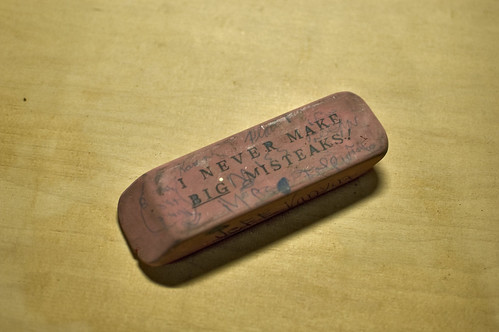I have had a few conversations lately about the propensity of tech people to overwork themselves. Many times our bosses are non-technical people and don’t really understand what we do. As a result, when they tell us to go home and leave it until tomorrow, our first thought is that they doesn’t really get it. I can’t go home, because if I do, something won’t get done and then church can’t happen.
There was definitely a season in my life when this was true for me. I would be working 50 hours a week, then some new thing would get added to my plate, and I would just pile it on top of the full schedule I already had. As I look back, much of this was motivated by a need to be accepted, to be the get it done person. I’m here to serve and I am going make this happen. I can be counted on.
I have a lot of thoughts on this subject, some practical and some theoretical, but this morning I was reading Gary Molander’s book entitled “Pursuing Christ, Creating Art” and there was section about where my identity comes from. As a technical artist in the church, much of my identity comes from being able to do whatever is asked of me, or pulling off the impossible, or the best mix, or amazing lighting or the perfect edit.
Gary talks about the day he stopped being a full-time pastor; the day he realized that his identity had been wrapped up in his job function and not his true identity: a child of God. I can completely see myself and some of the people around me, getting to this place. I put so much weight on my job performance and my ability to get it done that I overlook the fact that I am more than a task.
Do I have the courage to define myself another way? Is who I am enough without any of the things I do? God would say yes, but I am willing to let go of how I have been defining myself?
What about you?
I would recommend Gary’s book to every tech person I know. You can download a free chapter to check it out for yourself.







